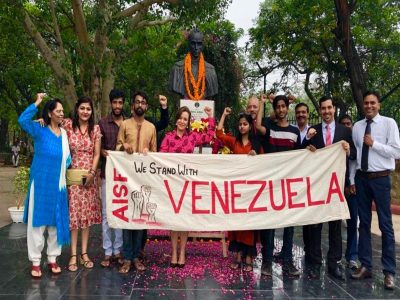In the dead of night, Rajesh Sharma (name changed) was recovering from what he described as a romantic evening after meeting someone on a prominent dating app that caters exclusively to the LGBTQAI+ community. A bottle of cheap wine lay open on the bedside table, and all seemed well—until his companion made a shocking revelation.
“They said we were being recorded,” Sharma recalled. “They claimed it was for the hijra community since they were from the same commune. Then came the demand for money. They said if I didn’t give them Rs 1 lakh, they would circulate the video. I gave the money, fearing for my reputation.”
But the ordeal didn’t end there. The following day, a group claiming to be from the same community turned up outside his home, demanding more money.
“I had no idea what to do. They said the person I paid hadn’t shared the money with them,” he said.
Sharma’s case is far from isolated. Across Delhi—and indeed, the country—such instances of blackmail are becoming alarmingly common. The tactic, known as sexual extortion or ‘sextortion’, involves leveraging intimate content to coerce victims, often under threat of exposure.
According to the Delhi Police, “These types of frauds can take place both against male and female victims (although the majority of victims are females), and the perpetrator can be either a known or an unknown person. In such crimes, the culprit usually entices and induces the victim to share their private and nude photographs or videos over the phone, which are then stored and saved for future extortion (sextortion).”
A senior officer explained that victims are often lured in by fraudulent profiles on dating or matrimonial platforms.
Also Read: Seeing the self: Transgender persons in Delhi find hope in surgery, but hurdles remain
“In many cases, individuals come across attractive profiles designed to trap them. The conversation begins normally but soon turns intimate. Once the victim shares nude or private content, the extortion begins—often involving demands of several lakhs. The threat typically includes posting the content online or sharing it with family and friends,” he said.
Instagram trap and expanding targets
The scam has also spread to other platforms.
“Lately, men are being contacted on Instagram by women with attractive profiles who quickly suggest a sex chat or nude video call,” the officer said. “If the man agrees, the interaction is recorded and later used to blackmail him. While heterosexual men are increasingly falling prey, many homosexual men are also being targeted.”
In some cases, the extortionist is not a stranger. The perpetrator may be an ex-lover—or even a landlord.
Krishna Ranjan (name changed), a 26-year-old MBA student, found himself in such a situation during a semester break in Delhi. He had rented a flat for two months and spent time socialising and interning. One evening, after inviting a date over through a dating app, he was caught off guard.
“We were together in his room when the landlord walked in. I’m not sure if the door lock was faulty or what, but he immediately started recording us and demanded money as a fine,” said Ranjan. “He deleted the video in front of me, but it’s likely still in his recycle bin. He threatened to report us to the police but hasn’t. I’m worried he might leak the video.”
No safe space for the closeted
For many queer individuals, the fear of family discovery becomes an even bigger threat than the blackmail itself. The stigma surrounding LGBTQIA+ identities often means victims have nowhere to turn.
Karan Pujari (name changed), a 24-year-old college student in Delhi, found himself overwhelmed and emotionally isolated when he became a victim of sextortion.
“Someone I met on a dating app was blackmailing me for Rs 50,000, threatening to reveal to my friends and family that I’m gay. This was my first time in a big city, and I wanted to explore the LGBTQIA+ scene,” he said.
Pujari matched with someone who quickly asked him to switch to WhatsApp.
“My WhatsApp only had my initials and an AI-generated image. But he messaged me saying ‘Hi <my name>,’ even though I’d never told him. That alarmed me,” he said.
The blackmailer somehow accessed Pujari’s real profile picture and full name using only his phone number.
“He demanded money for our supposed meeting. I tried to back out, but he wouldn’t stop. He later obtained my photo and full name—probably from my Google account, where I use that image. He didn’t mention my workplace, so I suspect it wasn’t from LinkedIn,” said Pujari.
He later traced the number to a gym trainer in Delhi with a Bihar-registered phone number but remains unsure of the identity.
“I haven’t complained to the police. My parents would be devastated if they found out I’m gay,” he said.
Silence fuels impunity
Many victims choose not to report these crimes for fear of being outed, leaving perpetrators unpunished and free to target others.
A senior police official stressed the importance of online caution.
“Be careful with digital interactions. The internet never forgets. Even if deleted, private content can be retrieved and spread quickly. Treat any rush to intimacy online as a red flag. Never let anyone record private moments—such data can be used to destroy your reputation,” he said. “Going to the police should be the last resort, but it’s often necessary.”
According to an NGO based in Delhi, they currently handle around five cases a month involving gay and transgender individuals being sexually extorted.
“These are just the reported ones. Many victims stay silent because they fear their sexuality being exposed to their families,” an activist with the organisation said, requesting anonymity.





